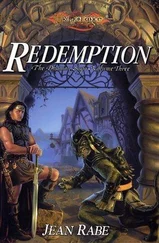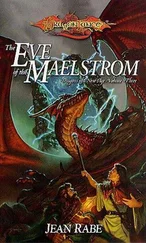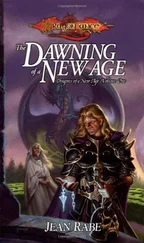Rex looked. He saw flickering flames on the front parade ground.
“Hell—have they gone crazy? Are they settin’ fire to the place?”
“If you look more carefully,” Pete said, “you’ll notice that there are a number of separate fires. And they are well away from the building.”
“Then what are they doing? Just keeping themselves warm?”
“It seems to me as though they are burning the equipment.”
Rex gave a long whistle.
“Y’mean…”
“Exactly. Equipment isn’t destroyed for fun, old man. I mean that the garrison is going.”
They were silent for a few moments, both peering anxiously. Then they heard a series of faint popping sounds, which probably came from the vicinity of the rifle range.
“Now what?” Rex asked. “Are they shooting at each other?”
“Not quite. They’ll be burning the small arms ammunition. There’s no danger if the slugs are first pulled out of the cartridge casings. That’s what they’ll have done.”
“It sure looks like they’re not goin’ to leave much for the Arabs to collect.”
“Yes,” Pete said. “It does. And I fancy we’ll get a good view of the destruction when we’re taken to the range in the morning.”
* * *
Annice Tovak saw the flames and heard the weak explosions from a room she had commandeered in the hotel. She ran the point of her tongue round her rich lips.
And she said to Adaa, who was at her side: “This, my fat friend, is memorable! Those are the fires of victory that colour the air!”
Adaa raised a hand in emphatic agreement.
Then she added with sudden venom: “Do you now see that nothing is impossible? Do you not understand that the power of the old tyrannies can be destroyed if one has determination enough? Look, my friend. Those fires will consume an empire. When the story of Sadazi is told, the oppressed peoples of all Africa will rise against their masters. And I—I, Annice Tovak—will lead them wherever they need me. I will teach them to strike without fear and without pity, as I learned to do against those who oppressed my own people in Europe.”
* * *
Sergeant Zatov raised a fist to the heavens as though demanding divine intervention. Then he glared at Lieutenant Gina.
“ Mon officier !”
It was more of a command than a preliminary statement of respect.
Gina, who was supervising the fires, looked faintly shocked.
“You wish to speak to me? Then don’t do so in that tone of voice.”
Gina flushed as he spoke. He could never hand out a reprimand without sounding like a nervous young schoolmaster. He was aware of the fact and it embarrassed him. In the privacy of his bunk he had tried modelling his voice on that of Monclaire. Tried to master that tone of quiet finality. But it would never come. Gina knew that his voice was too thin. And his experience too brief. He was aware, as he looked up at Zatov, that the monstrous N.C.O. thought him ridiculous.
Zatov was saying: “I wish to ask, mon officier , are these all the stores that are to be destroyed?”
“Er— oui . Plus the small arms ammunition.”
“But, mon officier , this is only spare bedding material. And only a few boxes of the ammunition are being burned. Are we to leave all the rest for those…?”
He was surprised to see that Gina was smiling at him. A nervous, immature smile. But it was genuine.
A thought struck Zatov. He smiled, too.
“Ah, officier , is it that we are to retum soon—?”
Gina nodded.
“ Oui . We are to return. Now find Captain Monclaire. He wants to speak to you.”
CHAPTER 11
THE VULTURES OF SADAZI
Monclaire glanced at his watch. Twenty minutes past eleven. He pulled on his greatcoat and buttoned it carefully. Then he strapped his pistol belt over it. His kepi followed. He glanced at his reflection in the office window. It was an inadequate reflection. He looked vaguely transparent. But it sufficed to show that each detail of his dress was correct. He picked up his cane and took a last look round.
The office seemed much the same as usual. But there was not much about it that could be changed. The only furniture was the desk, a couple of chairs, and the filing cabinet. That filing cabinet was now empty and the drawers open. That was the only real departure from normal. The Touaregs would find little to interest them there.
He strode out, leaving the door unlocked. There was no point in inviting a mob to smash it open.
A single oil lamp flickered in the corridor. Its light created shadows that were deep and ominous. Monclaire paused to blow it out.
Then he strode through the double doors, down the six wide steps, and on to the front parade ground.
A slight and pallid figure emerged from the gloom. It was Lieutenant Gina.
Gina came carefully to attention and saluted. When the courtesy had been returned, Gina said: “The garrison’s ready for inspection, capitaine ,”
“ Merci , mon lieutenant .”
They moved towards the flank of the front file. A sous lieutenant called a command. The file made a single movement, then clicked into rigidity.
There seemed to be a great many of them. Viewed from Monclaire’s angle, the men merged into the night. It was impossible to see more than a quarter of the way along the column.
And Monclaire—who liked finding similes—thought that, in full marching order, they looked like young camels. The valises on their backs—each supporting a tent sheet and a blanket—gave the appearance of small humps.
He began the inspection. He did it thoroughly, pausing occasionally to adjust a legionnaire’s shoulder strap or examine some other part of the equipment for cleanliness.
He thought: “They are cursing me for doing this… they think I am mad to hold an inspection in the middle of the night… but we are not scampering out of Sadazi like a rabble… we shall march away as soldiers of France…”
When he had inspected most of the third and last file he became aware of a sudden and familiar rumbling of voices. It came from outside the railings. He glanced at Gina.
“It seems,” Monclaire said, “that we are to be given a hearty send off.”
Gina wanted to say something equally casual, equally mature and composed. He made a turbulent excavation of his vocabulary. But all he could produce was, “ Ah oui , capitaíne ,” plus a thin laugh. He was furious with himself.
When he had looked at the last legionnaire, Monclaire paused to glance towards the railings. Many of the mob were carrying tallow lamps and the light from them showed up a heaving concourse. They were struggling for the best positions to see the last of the Legion. And already they were screaming abuse at the garrison.
Gina hesitated, then said vehemently: “ Canaille !”
Monclaire shook his head.
“ Non , they are not that. They are not a true rabble. They have merely fallen under the spell of bad arguments and lies. Backward peoples, wherever you may find them, are always the easiest material for the unscrupulous. It is too easy. They promise them a freedom that they could not use. They mouth the phrases of democracy to peoples who cannot read or write. And to what purpose? In the end the liberators become the new governors—and often far harsher ones than those they have deposed. And peoples such as we see out there are taught to sing the songs of freedom even as the tyrant’s whip lashes their backs… Non , mon ami , they, the masses, are not to blame. They are not canaille . You will find the true canaille among the people like Madame Tovak. People who use superior intelligence deliberately to mislead the less fortunate.”
Читать дальше












